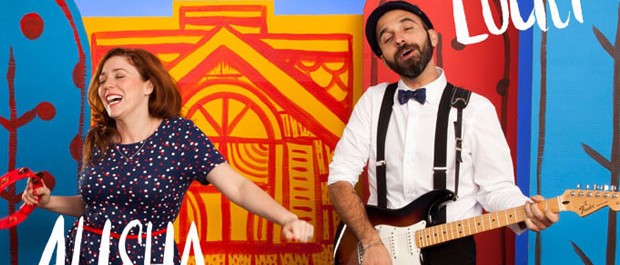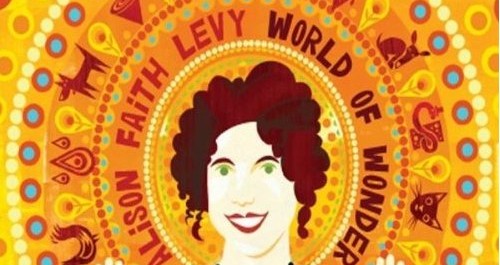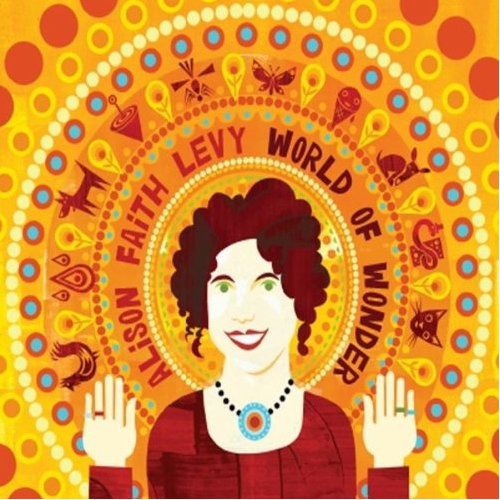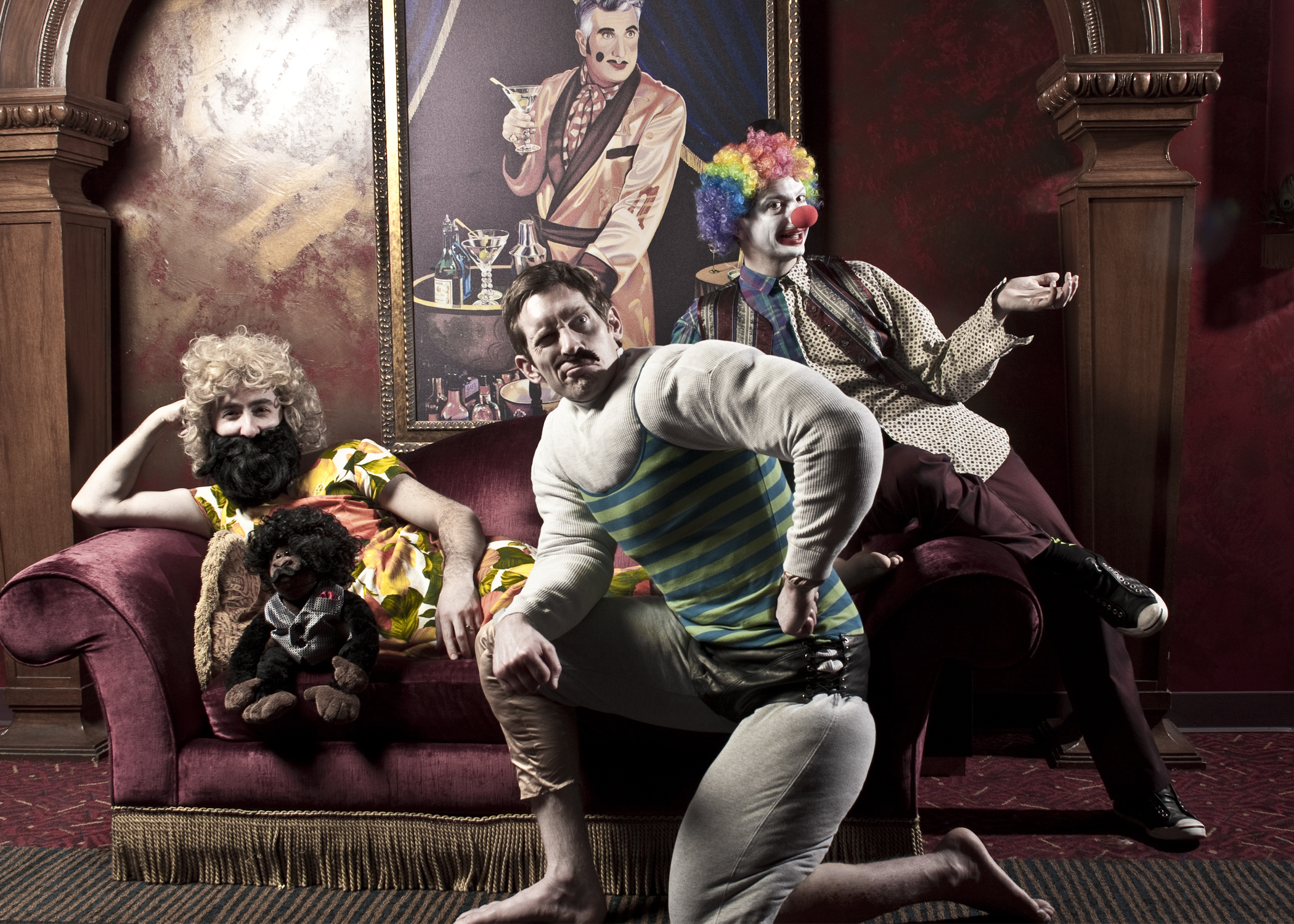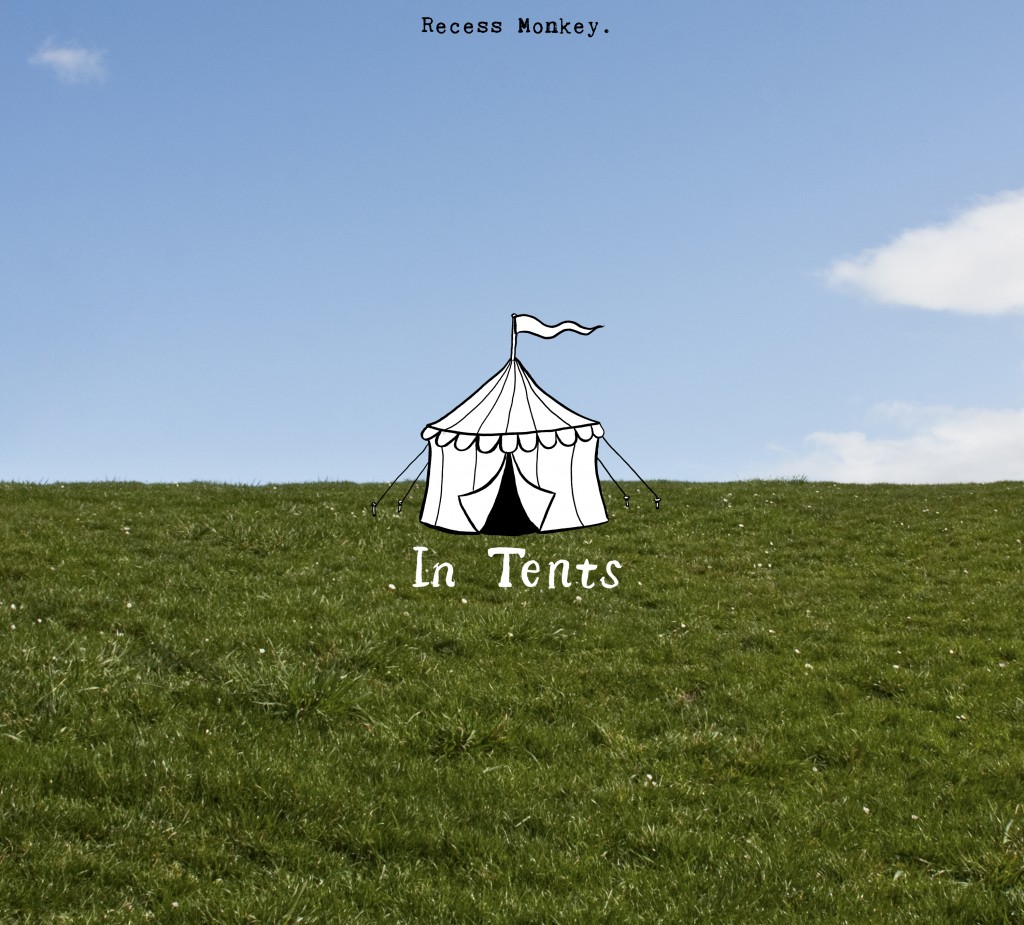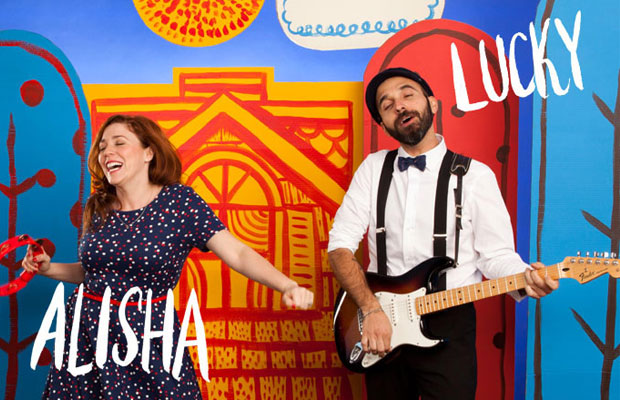
Lucky Diaz just finished one heck of a week. Not only did he release a new album, A Potluck, with his Family Jam Band, but he also married bandmate Alisha Gaddis. Despite all those things on his plate, he took time out to chat with me about getting married, releasing the new record, his daughter Ella and why he is willing to give away his albums to teachers.
Did you plan on getting married & releasing a record in the same week on purpose?
(Laughs) No. The rule that Alisha laid out was, finish the record before we got married. The record has been finished for about two months now. So I took care of that part. We always release albums in the spring and we just happened to be getting married in the spring. In hindsight, maybe not. I’m excited to be doing both, but it’s been fun.
According to Facebook, last week your then-fiancé Alisha made apple pie for the first time. After tasting it, any regrets on this whole marriage thing?
I have a thing about pie. Pie is my favorite food. However, I’m diabetic so it’s not very often I get to eat pie. She had this idea for making a pie and she’d be the first to tell you that she’s not very domestic. She doesn’t cook very often. So she has this ambition to become a great cook. As for the pie? It was delicious. But regardless of the pie, I was going to marry her. I’m the winner here.
How did the two of you meet and become bandmates?
Here’s how it really got started. I have a daughter, Ella, who is eight, and I started playing songs for her at bathtime. I really wanted to her to get acquainted with the music I grew up on like the Beatles, Buddy Holly, and the Beach Boys. At some point I started just making up songs for her and she really liked them. Then I played songs for her friends and they really liked them. Alisha and I were dating at the time and she said “You should record these.” I was already doing sessions for other people, so I decided to go ahead and record it. I just really loved the idea of having a family jam band. Alisha is such a good entertainer. It made sense to do it together. We’re the real traveling family band. Ella travels with us and it’s a really fun experience to do as a family. It wasn’t intentional, but I can’t do it without her now.
What were you doing prior to children’s music?
I was just writing all the time, sometimes for different musicians, et cetera. But there’s something special about children’s music. I think there’s something unique about parents and children listening to music together, and I feel nowadays that just doesn’t happen. Growing up for me it was listening to the Beatles, America, the Doobie Brothers or the Who. My musical education really started with AM radio and to me, that was family music. Today, I’m not sure that it is.
Back then it, music was universal. Everything is so targeted now. Lady Gaga is intended for a certain audience. Kanye West. I’m a huge Kanye West fan, but I’m not going to play it for Ella. Top 40 back in the ’50s, ’60s, ’70s, and ’80s was great for everyone. I don’t think that is really happening today in music. I think a lot of parents play Top 40 music for their kids and they’re growing up way too fast. I don’t think it’s cool that way. I mean I’m a pretty progressive parent in a lot of ways, but pop music has changed in a way that I’m not 100% comfortable with. It’s not same thing as in 1965 hearing the Rolling Stones sing a love song.
Right, it was the same way for me growing up — my parents would play Simon & Garfunkel all the time.
Right! How could anyone not like Simon & Garfunkel? It was beautiful stuff, everyone could listen to it.
For A Potluck, you recorded an ode to your childhood, “Tres Rotanes.” How did picking that song come about?
I’m a Mexican-American and my parents are Mexican. I did grow up listening to a lot of Mexican music and it is a part of my heritage. I’ve always wanted to write Spanish music, but I had just never gotten around to doing it. We were touring in Texas this past year and my parents are outside Austin. We were there hanging out, and I just got in touch with my roots. We were there with Ella, and when you’re with family, you start to reminisce about the old days. I just started to talk to my mom about the songs from my childhood. I thought it would be cool to adapt one of those songs on the new album. There was an artist from Latin America called Cri Cri who was popular back in the ’30s. His songs and poems were kind of weird. I just wanted to write this Old 97’s alt-country type song for the new record with Spanish lyrics. It’s fun. Ella really likes it. It’s a great connection for me.
You seem to write a lot of songs for Ella. How much longer until she no longer wants you testing songs out on her? Will it change the way you write?
I think she’s already getting too old. She’s getting jaded. She used to be “I really like that” and now she’s more like, “Yeah, it’s OK, I kind of like.” She’s getting older and her tastes are changing. I don’t think it will change how I write. It comes from an honest place. Good music just feels good. I think the message is we want to communicate with children. I love writing in this format. It’s not going to change how I write. I mean, we plan to have more children. So it’ll be a beautiful perpetual cycle — every new kid will provide eight years’ worth of material!
The area where you live, L.A.’s Silverlake neighborhood, helps a lot with your creativity.
Yeah, it’s a really artistic neighborhood. Elliot Smith came out of the neighborhood. The Silversun Pickups are from here. The great producer Daniel Lanois lives here. You’re at a coffee shop and Aimee Mann is sitting at a table across from you. It really inspires us. It’s our own ecosystem. I would compare it to being in the Village back in the ’60s. It has so much diversity and it’s a beautiful thing. I love seeing how Ella is being inspired by the neighborhood. It’s funny — we have a squirrel in our backyard that is literally crazy, so of course we wrote a song about it. There’s inspiration in our neighborhood on a daily basis.
You guys are willing to give your music away to teachers. Talk about that decision.
It’s really important. We have a very open door policy. We will give our music to any teacher who wants to use it in their classroom. The truth about it is that education is already being shortchanged, and music programs are being cut. Teachers work really hard and take money out of their own pocket to educate our children, so the least we can do is provide our music to them. Alisha’s mom is a teacher. My mom is a teacher. You want your kids to be enriched at school. You never know — there could be a kid in Milwaukee who hears our music and is inspired to play an instrument. That changes lives in such a great way, I can’t stress how important music in schools is to us. Our educators deserve it.
What is your impression of the kids’ music scene?
I’m still learning about this kindie scene. We just released this EP and figured we’d give it to our friends and hoped they’d like it. Then all of the sudden the phone was ringing and people saying “We love your song ‘Blue Bear.'” Then Sirius Kids Place started playing this song and it kind of blew up. We’re still learning and finding out new things every day.
It’s hard to make money making music. How do you make it worth the time and effort?
We’ve been very lucky. We’ve been able to book some good-sized shows. We’ll try and book one anchor show that will allow us to pay for our travel and then we can play other shows where we might not make as much. That’s how we’ve been able to make it work. We can go from one day playing LEGO Land and the next day playing our garage for a birthday party. We’ll play anywhere and try to make ends meet.
Take a magic wand to the kindie music scene.
I would love to start a record label and just put out some really good records. I would love to put together a West Coast collaborative of kids’ artists. Maybe even a West Coast KindieFest — Hello? Stefan? — I think working more together with other artists would be great.
For more information on Lucky Diaz & The Family Jam Band, visit their website.
